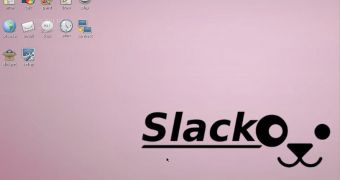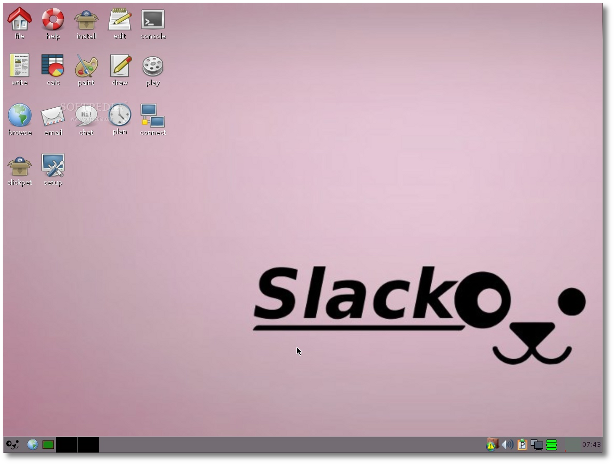Barry Kauler announced a couple of days ago, May 5th, the immediate availability for download of the Puppy "Slacko" 5.3.3 Linux distribution, based on the Slackware Linux 13.37 operating system.
Puppy Linux "Slacko" 5.3.3 is an update of the 5.3.1 version, bringing fixes and improvements. It is now powered by Linux kernel 3.1.10 and built with packages from Salix, Slackware and Slacky software repositories, and binary compatible with Slackware 13.37.
"This year, Slacko Puppy project coordinator Mick Amadio ('01micko' on the Puppy Forum) became a full-time college student, so we expected considerable slowdown of development of Slacko."
"However, like the rest of us, Mick is a Puppy addict, and has now released version 5.3.3. Mick, I hope that your college studies are not neglected!" - said Barry Kauler in the official release announcement.
Highlights of Puppy Linux "Slacko" 5.3.3:
· Linux kernel 3.1.10 (with Aufs layered filesystem support); · SCSI boot support in the ISO image; · SeaMonkey 2.9.1 is now used as default web browser and email client; · Installers for Chromium, Netsurf, Mozilla Firefox, Dillo and Opera web browsers; · PAE version for PCs with large amounts of RAM; · Added Slickpet, a lite version of Quickpet that supports installing SFS packages; · LibreOffice 3.5.3 office suite; · Java Runtime Environment; · Samba 3.5.4; · Puppy Package Manager now supports Slackware, Slacky and Salix packages in txz or tgz format; · Added sfs_load to handle Puppy's SFS packages; · Abiword; · Gnumeric; · Support for many audio and video formats; · Samba-TNG; · Added netboot version in order to boot Puppy Slacko over the LAN.
Download Puppy Linux "Slacko" 5.3.3 right now from Softpedia.

 14 DAY TRIAL //
14 DAY TRIAL // 